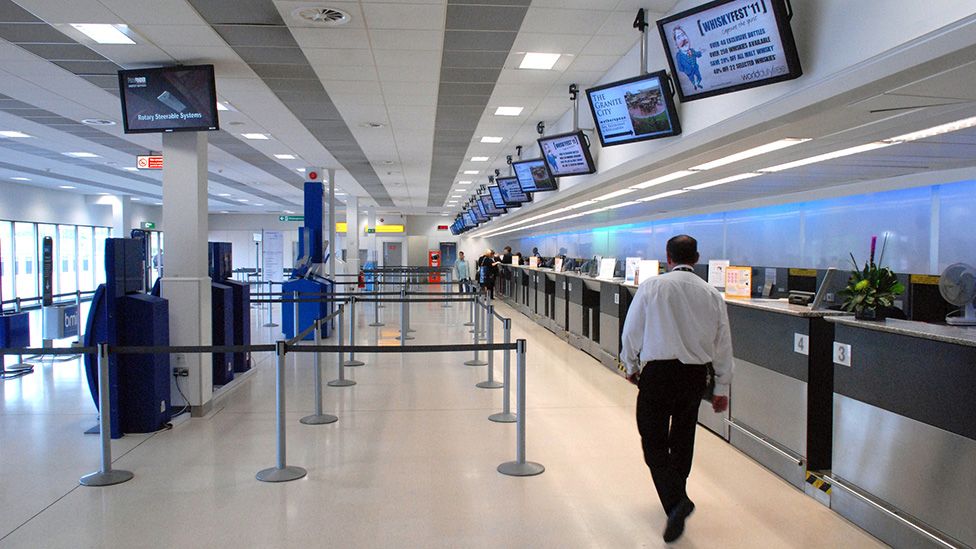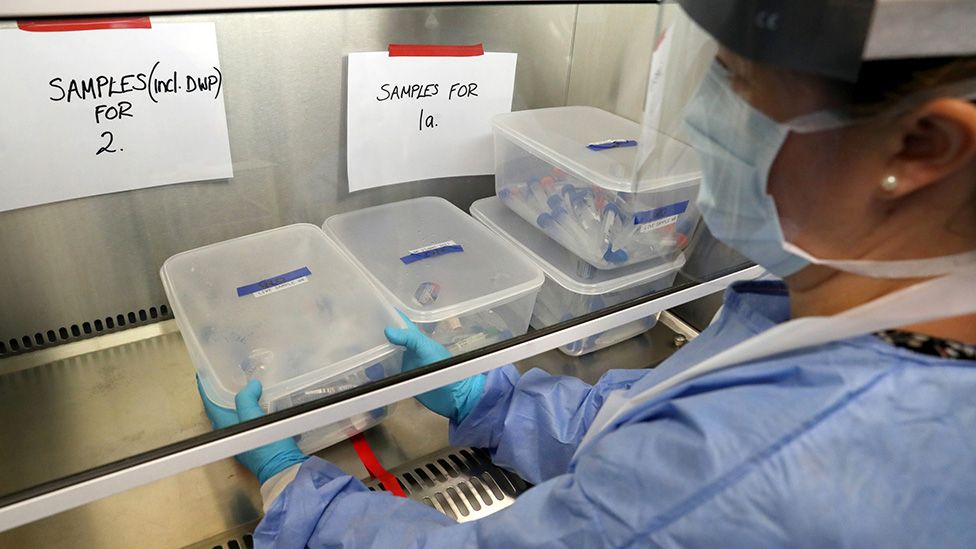
An enhanced contact tracing effort is under way after the Brazilian variant of Covid-19 was detected in Scotland.
Three Scottish residents tested positive for the new strain after flying into Aberdeen from Brazil, via Paris and London.
Other passengers who were on the same flight from London are now being contacted.
Experts believe this variant (P1) - first detected in northern Brazil in January - could be more contagious.
Three other cases have also been detected in England, but they are not linked to the Scottish cases.
Officials are still trying to track down one of those who tested positive for the new variant in England.
Jillian Evans, head of health intelligence at NHS Grampian, said the three Scottish travellers had arrived in Aberdeen in early February, before new rules on hotel quarantine came into force.
She told BBC Radio's Good Morning Scotland programme they had isolated together for 10 days after arrival in accommodation provided by their employer.
They tested positive while in isolation.
She said that health protection specialists were now following up "contacts of their contacts" in an effort to ensure that any further cases were found quickly.
Anyone traced will be offered a Covid-19 test.
"That's not standard procedure, that's going one stage further," Ms Evans said.
"But of course they have been quarantined for 10 days in managed isolation for that period of time, so you would think that they wouldn't have many contacts to follow up.
"Nonetheless, that's an added precaution that's been taken by health protection specialists."

Scotland's national clinical director, Prof Jason Leitch, said it was the first time the Brazilian variant had been detected in Scotland, but told BBC Scotland there was "no evidence" of community spread.
He said the three travellers had tested negative before leaving Brazil.
"The measures that were in place at the time of this were really quite rigorous," he said.
"These individuals self-isolated. They were from a high risk country, so they followed the instructions and there is no suggestion of any blame or concern about their behaviour. I think that's very important."
Prof Leitch added that "enhanced" contact tracing was necessary in this case because of concerns about the Brazil strain's resistance to immunity.
"The reason why we're worried scientifically is we're not absolutely certain that this version is amenable to the natural immunity some people already have and the artificial immunity we are creating with vaccination," he said.
"Everything we know says it's still very effective, but we just can't be sure yet because it hasn't been around long enough and the trials haven't completed."
Both the Scottish government and Public Health England said the variant had been designated "of concern" as it shared some important mutations with the variant first identified in South Africa (known as B.1.351).
One of these mutations - called E484K - may help the virus evade parts of the immune system called antibodies.


https://news.google.com/__i/rss/rd/articles/CBMiL2h0dHBzOi8vd3d3LmJiYy5jby51ay9uZXdzL3VrLXNjb3RsYW5kLTU2MjM2NzUw0gEzaHR0cHM6Ly93d3cuYmJjLmNvLnVrL25ld3MvYW1wL3VrLXNjb3RsYW5kLTU2MjM2NzUw?oc=5
2021-03-01 08:01:46Z
52781409729547
Tidak ada komentar:
Posting Komentar